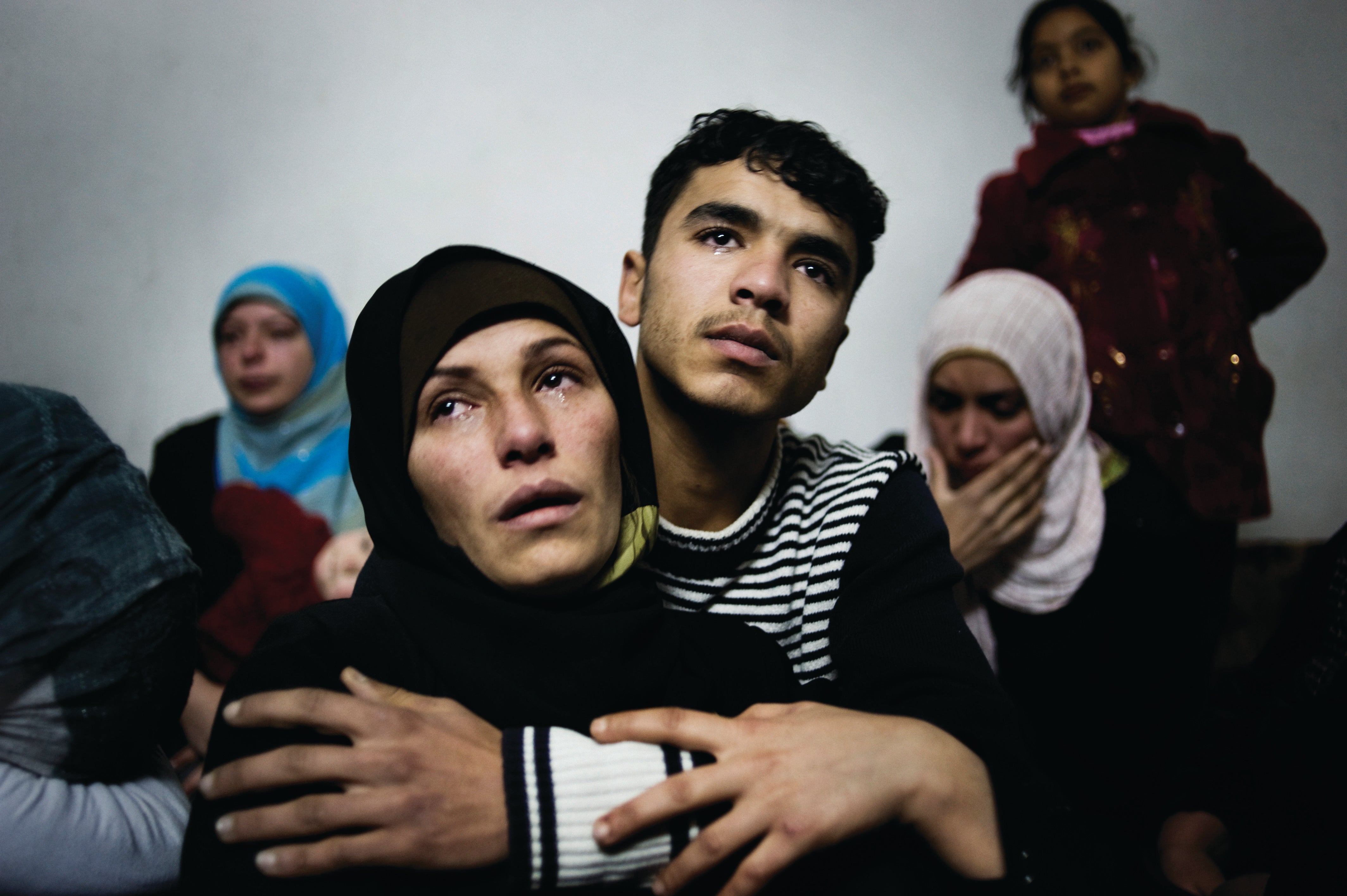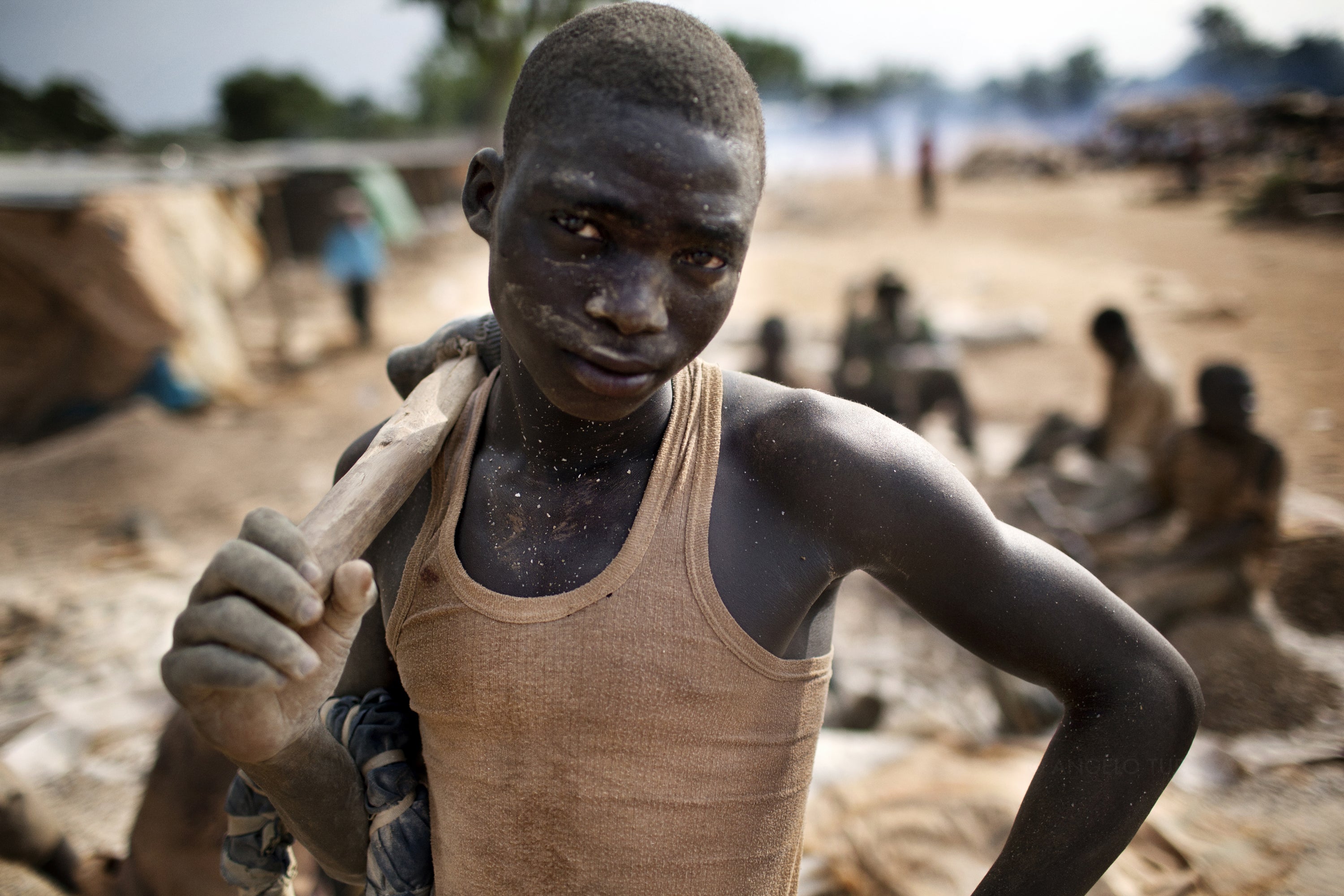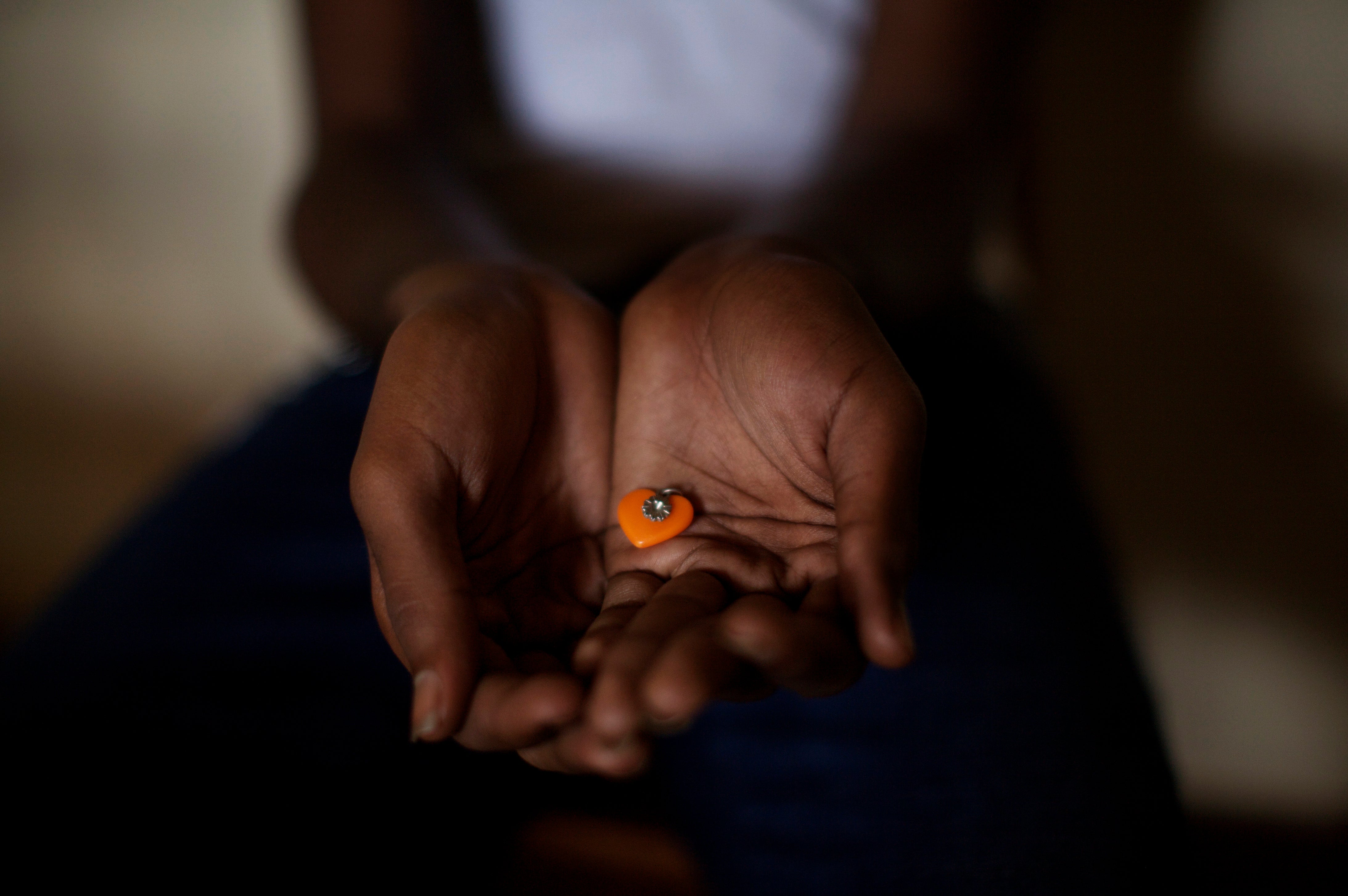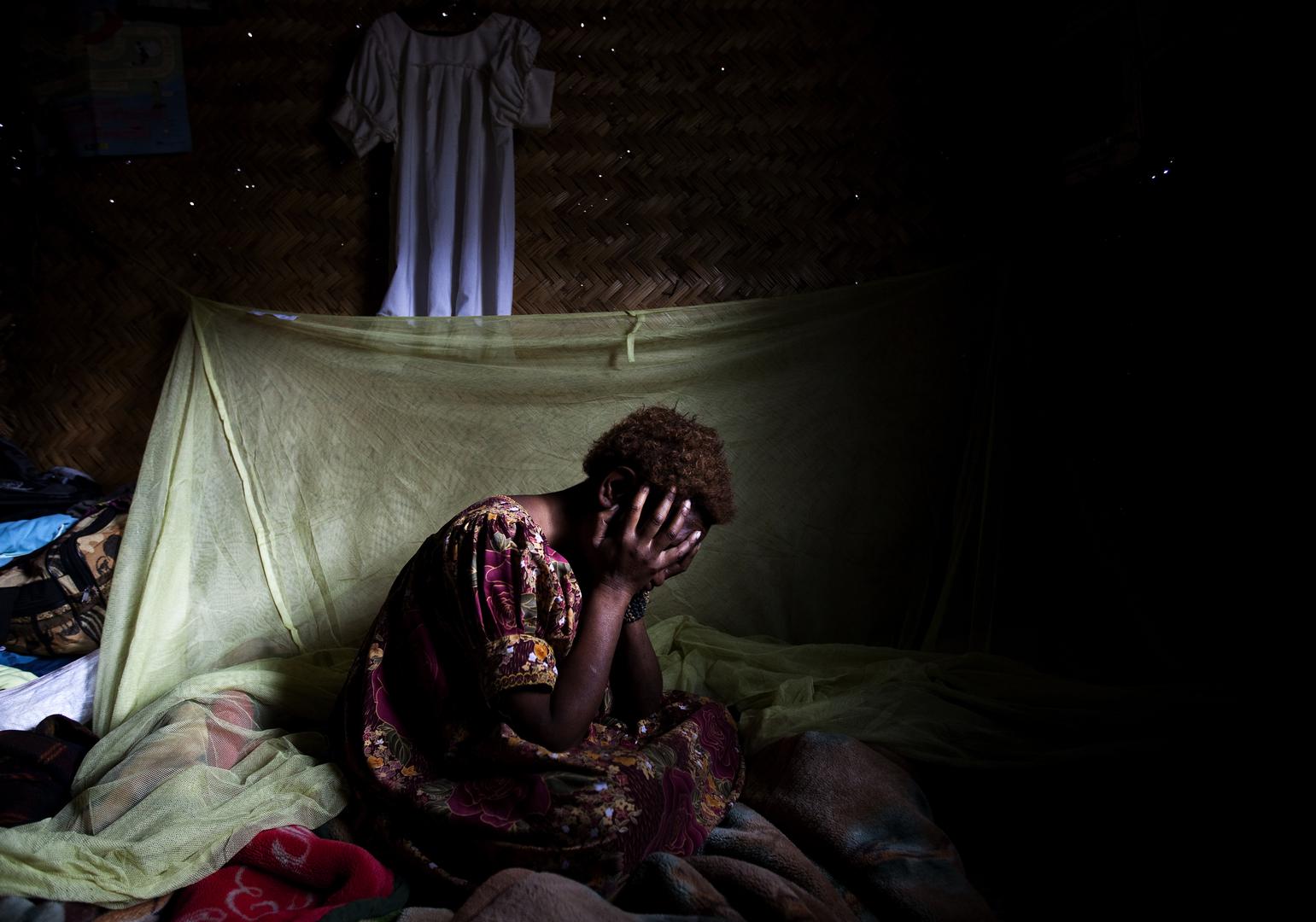Following the ouster of President Zine el-Abidine Ben Ali in January 2011, Tunisians elected a National Constituent Assembly (NCA) in October 2011 and entrusted its members with drafting a new constitution, to be followed by legislative and presidential elections. The Islamist party Al-Nahdha, which won a plurality of seats in the elections for the NCA, formed a governing coalition with Al-Mu’tamar min ajl al-Jumhuriyya party (Congress for the Republic) and the leftist Ettakatol party (Democratic Forum for Labor and Liberties) to form a ruling coalition. At this writing, the NCA was debating a draft constitution, drafted by a group of six NCA committees, which upholds several key human rights and fundamental freedoms but also contains provisions that undermine women’s rights, as well as freedom of expression and of thought.
Tunisians enjoy a greater degree of freedom of assembly, expression, and association, and the right to form political parties than in the past. However, the consolidation of human rights protections was hampered by the failure to adopt reforms that would lead to a more independent judiciary, attempts by the executive branch to exert control over the media, the prosecution of speech offenses, and the failure of the authorities to investigate and prosecute physical assaults against individuals attributed to fundamentalist groups.
Accountability for Past Crimes
The interim government took some positive steps to investigate crimes committed during the December 2010 to January 2011 uprising and compensate those whom the security forces injured or who lost family members. A national fact finding commission, created by the first transitional government to investigate abuses during the uprising, issued its final report in April 2012, and identified 132 people killed and 1,452 injured up to January 14, 2011, the day Ben Ali fled.
Military courts tried several groups of defendants for the killing of protesters, and sentenced Ben Ali in absentia to life in prison for complicity in murder under article 32 of the penal code. Military courts also sentenced a minister of interior who held office at the time of the uprising to a total of 27 years in prison, and sentenced 20 other senior officers to several years in prison for intentional homicide during the uprising. Although the trials appeared to respect the defendants’ basic human rights and allow victims to access justice, several factors undermined their contribution to achieving accountability, including failure to identify the direct perpetrators of the killings, an inadequate legal framework for prosecuting senior officers for command responsibility for crimes that their subordinates committed, and lack of political will from the government to press for Ben Ali’s extradition from Saudi Arabia.
A military court sentenced Abdallah Kallel, former interior minister under Ben Ali, and three other security officials to two years in prison, for “using violence against others either directly or through others,” in a case involving 17 high-ranking military officers who were detained in 1991, and accused of plotting with Al-Nahdha against Ben Ali.
Reform of the Judiciary
Executive branch influence over the judiciary persisted due to the failure to adopt long-awaited reforms of the judiciary, including a law that would set up a temporary judicial council to supervise the judiciary pending adoption of a new constitution. In its absence, the Ministry of Justice has been directly supervising the judiciary, including the appointment, advancement, and discipline of judges.
Freedom of Expression and Media
Decree-law 115-2011 on the print media, and decree-law 116-2012 on the broadcast media had not yet been fully implemented at this writing. Decree-law 116 requires the creation of an independent high authority to regulate broadcast media. The interim government refused to implement the decree-law and continued to unilaterally appoint the heads of public media.
In June, Al-Nahdha deputies in the NCA submitted a draft bill that would amend the penal code by imposing prison terms and fines for broadly worded offenses such as insulting or mocking the “sanctity of religion.” The courts made wide use of repressive provisions of the penal code inherited from the Ben Ali era, such as article 121 (3), which makes it an offense to distribute material “liable to cause harm to the public order or public morals.”
In September, a public prosecutor brought charges against two sculptors for artworks deemed harmful to public order and good morals. On March 28, in the first instance of a tribunal run by the city of Mahdia, two bloggers were sentenced to prison terms of seven-and-a-half years, confirmed on appeal, for publishing writings perceived as offensive to Islam. On May 3, Nabil Karoui, the owner of the television station Nessma TV, was fined 2,300 dinars (US$1,490) for broadcasting the animated film Persepolis, denounced as blasphemous by some Islamists. On March 8, Nasreddine Ben Saida, publisher of the newspaper Attounssia, was fined 1,000 dinars ($623) for publishing a photo of a football star embracing his naked girlfriend.
In addition, a military tribunal sentenced Ayoub Massoudi, former advisor to interim President Moncef Marzouki, to a suspended prison term of four months for the crime of impugning the reputation of the army under article 91 of the code of military justice, and for defaming a civil servant, because he accused the army chief-of-staff and the minister of defense of dereliction of duty for failing to inform Marzouki in a timely manner of the plan to extradite former Libya Prime Minister Baghdadi Mahmoudi to Libya.
Women’s Rights
Tunisia was long viewed as the most progressive Arab country with respect to women’s rights. However, the NCA adopted a draft article that could erode women’s rights by emphasizing “complementary” gender roles within the family, an apparent retreat from the principle of equality between men and women as required by article 2 of the Convention on the Elimination of All Forms of Discrimination against Women (CEDAW), ratified by Tunisia in 1985.
Sexual Orientation and Gender Identity
Minister of Human Rights and Transitional Justice Samir Dilou said in a TV interview that “freedom of expression has its limits,” and stated that homosexuality was a “perversion” that needed to be “treated medically.” However, Chakib Darouiche, the ministry's press attaché, confirmed that Dilou acknowledged his responsibility to protect the rights of Tunisia’s LGBT minority like those of any other Tunisian citizens.
Failure to Investigate and Prosecute Attacks by Fundamentalist Groups
Throughout the year, there were several physical assaults on intellectuals, artists, human rights activists, and journalists carried out by individuals or groups who appeared to be motivated by a religious agenda. In cases monitored by Human Rights Watch, the victims filed complaints at the police stations immediately after the assault. However, the police proved unwilling or unable to arrest the alleged perpetrators, and several months after the incidents no formal investigation or prosecution had been initiated against them. For example, Rajab Magri, a drama teacher and civil society activist, said that on May 25, 2012, a group of men with the long beards commonly associated with Salafis assaulted him in Le Kef, a city 170 kilometers west of Tunis, breaking five of his teeth. Zeineb Rezgui, a journalist for an economics magazine, said that on May 30, several bearded men assaulted her in a working-class neighborhood in Tunis, allegedly because she was wearing a sleeveless summer dress. Magri and Rezgui both filed complaints with local police, but never heard from the authorities about investigations into these incidents.
Abuses against Protesters
While Tunisians enjoy the right to demonstrate to a far greater degree than in the past, the security apparatus has yet to learn and implement crowd control techniques aimed at minimizing the use of force. For example, security forces attacked a mostly peaceful demonstration on April 9, injuring some protesters and in some cases causing bone fractures. The demonstrators were marching towards Habib Bourguiba Avenue, an iconic site of the Tunisian revolution, to protest against Interior Minister Ali Laarayadh’s decision to ban demonstrations at the site indefinitely. The minister rescinded the decision two days later.
Key International Actors
The European Union provides assistance for a wide range of programs for institutional reforms, including for the judiciary and the security sector. In October 2012, the EU approved €25 million ($32 million) to aid strengthening the independence of the judiciary. In its 2012 European Neighborhood Policy (ENP) report, the EU urged Tunisia to ensure the effective implementation of international human rights conventions ratified by Tunisia, and to adopt the necessary legislative reforms for the consolidation of democracy, including the reforms relating to the judiciary, the security sector, and the media.
On May 22, 2012, the United Nations Human Rights Council (HRC) Universal Periodic Review (UPR) mechanism examined Tunisia’s human rights record. In its official response to the debate on September 19, 2012, Tunisia upheld most of the recommendations it had received. However, it has rejected those related to the decriminalization of defamation, particularly of religion, non-discrimination against women, and on the basis of sexual orientation, and abolition of the death penalty, on the ground that these are contentious issues that need extensive discussion at the NCA.




